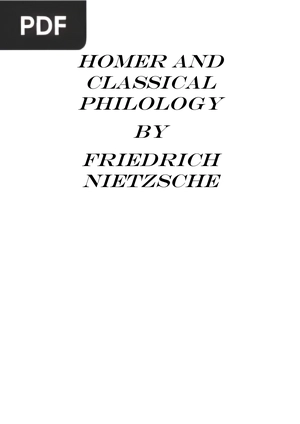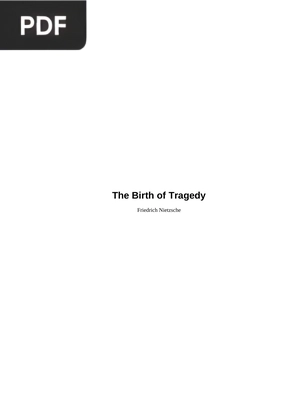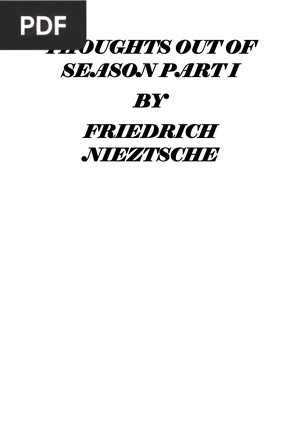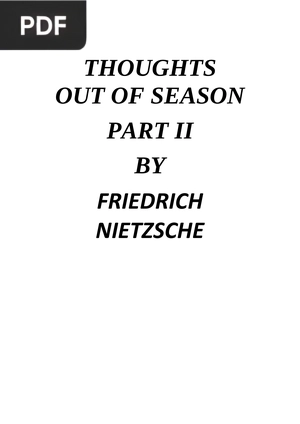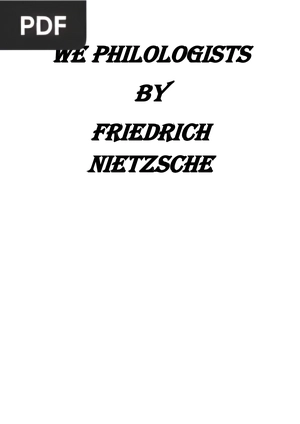The Case of Wagner
Author: Friedrich Nietzsche
*Please wait a few seconds for the document to load; the time may vary depending on your internet connection. If you prefer, you can download the file by clicking the link below.
Loading PDF...
Document Details
Title: The Case of Wagner
Author: Friedrich Nietzsche
Pages: 83
Size: 0.58 MB
Format: PDF

